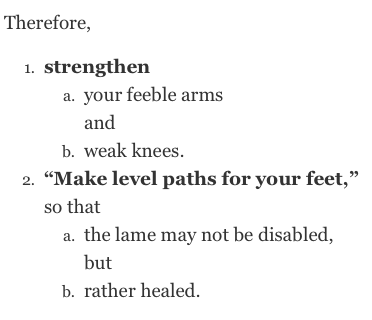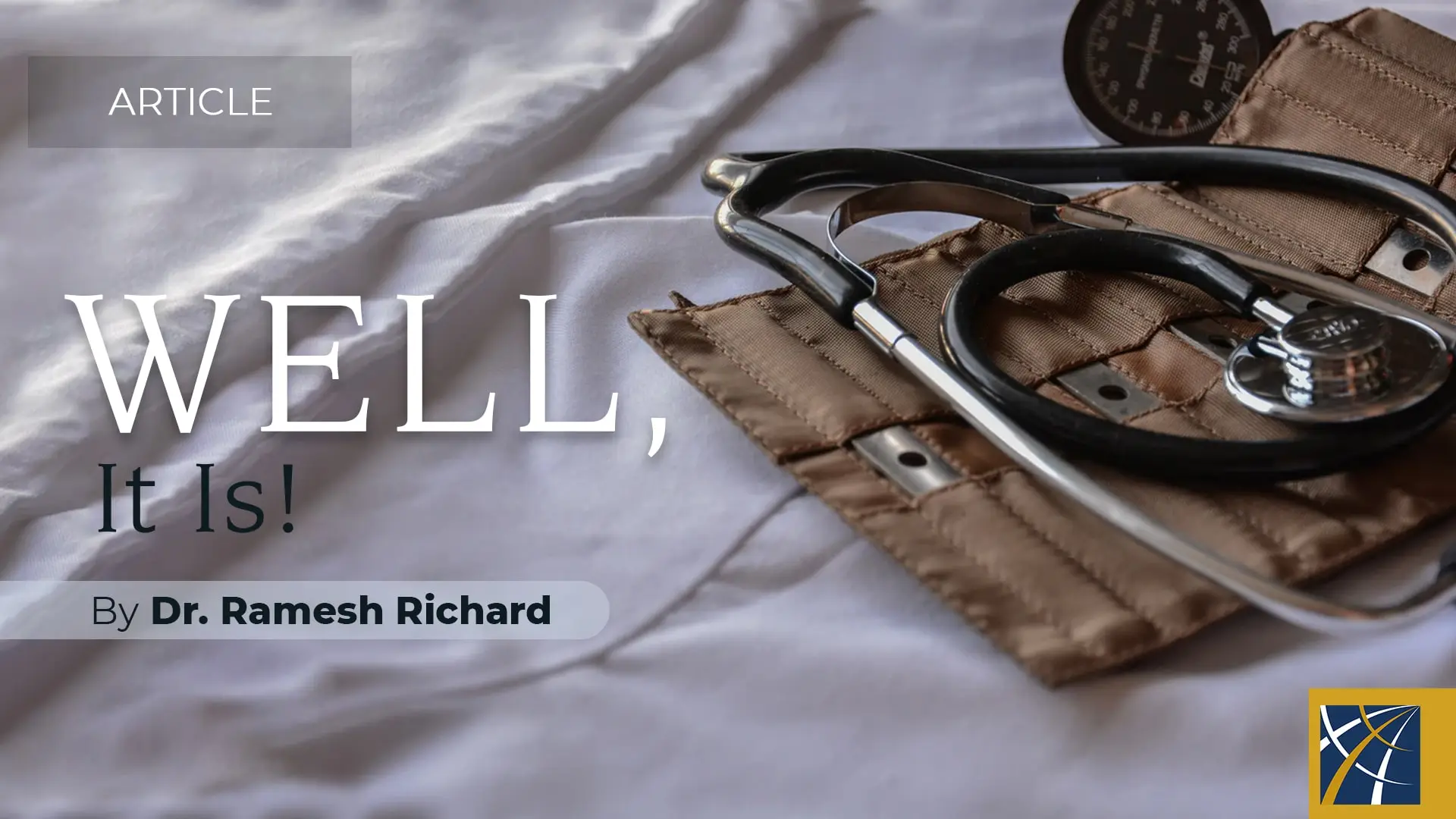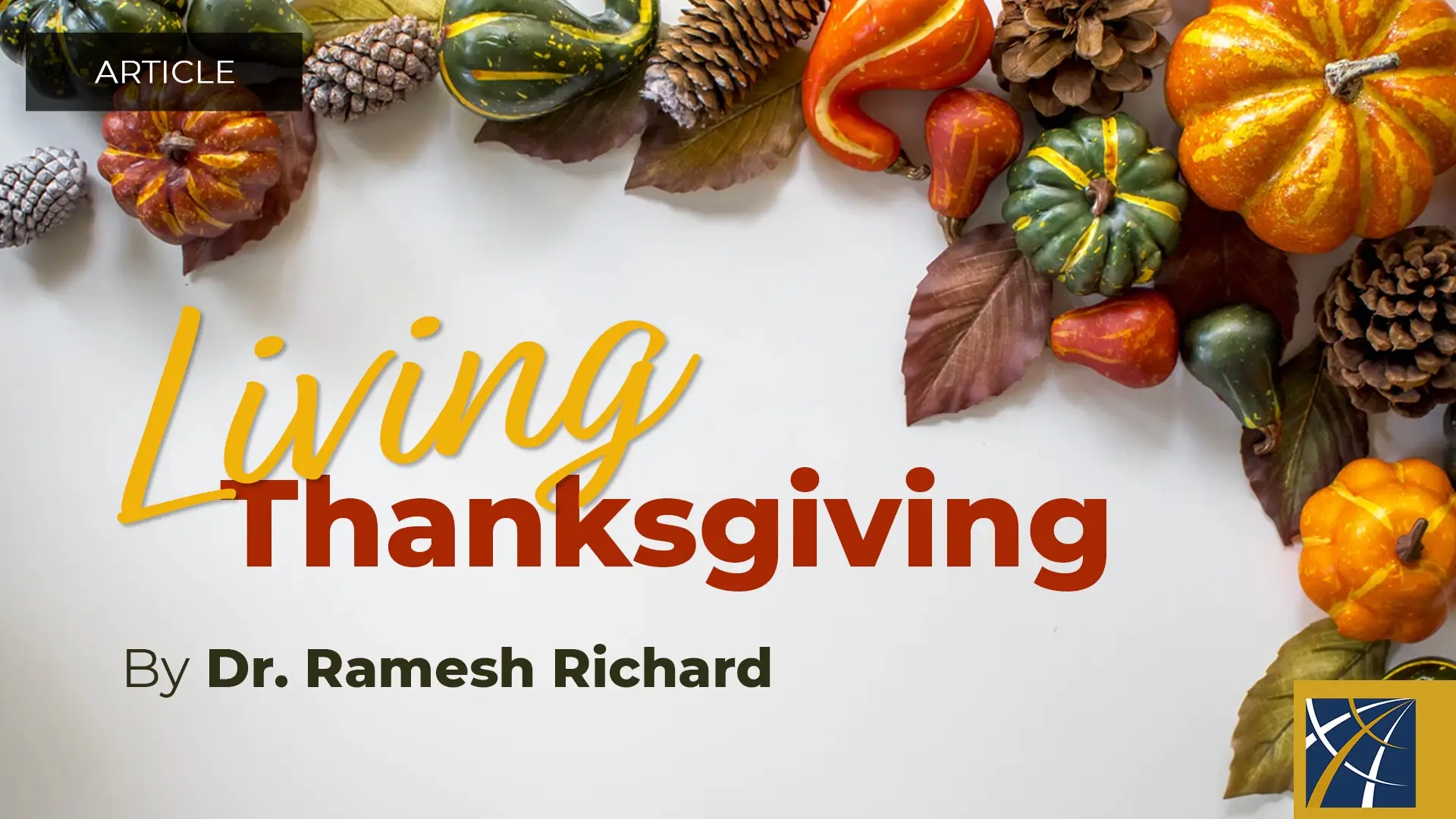By Dr. Ramesh Richard
A Latin American pastor felt free to share his innermost feelings earlier this year with our son Robby, also a pastor: “I don’t know where I am taking the church, nor do I know where I am going. I’ve lost the drive.” Robby commented to me, “He gave me the impression that he has lost the drive and doesn’t care either!” This pastor well illustrates one of my primary convictions in ministry: “pastoral health affects church health.”[1]
Health and healing have been at the forefront of everyone’s mind this year. Google’s year-end search summary revealed that
- “This last year, the world searched for how to heal more than ever before.”
- “How to cure burnout was a breakout U.S. search in 2021. A breakout search is one that has increased at least 5000% over the prior time period. It’s a big deal.”
- “In 2021, global search for mental health reached the highest level ever.”[2]
Will this unwell situation be the norm from now on, ongoing and intensifying till we all lose the drive?
Diseases have afflicted humanity throughout history. Remember, for instance, the plagues of Egypt? Our finite minds will always struggle to know whether epidemics are specific judgments of God caused by human sinfulness.
Scripture affirms that God does orchestrate epidemics of adversity even on His own people for his own principles and purposes. The prophet Habakkuk describes him as “Before Him goes pestilence, And plague comes after Him” (3:5 NASB-95). God could have wiped us all out a long time ago.
Ultimately, what afflicts God’s world affects God’s children. God’s family is not spared from the grief and groaning of general, joint human suffering, and that suffering is part of fatherly discipline for our spiritual maturity.
During some of the first year of the global lockdown, I lived in an overlooked section of Hebrews, the longest sermon in the New Testament. Likely, preached in one sitting to a house church, the 13-chapter book of Hebrews may itself have felt like divine discipline! It did require endurance to stick through it. Anybody endure a long sermon lately?[3]
Hebrews 12, especially verses 12–13, puts into perspective how we are to prepare for and persevere in the long race of ministry and the Christian life.
A Lifelong Race
I met fitness icon Orville Rogers a year or two before his death at 102. In addition to being husband, father, grandfather, and great-grandfather, Orville was a world-class runner, even into his nineties. He held 15 world records in age-graded track events, having run five marathons and many shorter races.
He also ran a spiritual marathon as a church leader, Bible teacher, investor-giver, and missionary aviator. In the context of our subject, he continues as an inspiration to keep me and others from losing heart over the long run (pun intended). This Mr. Rogers illustrates the double command of Hebrews 12:12–13, on how to run strong and straight in life’s long race.
Therefore, strengthen your feeble arms and weak knees. “Make level paths for your feet,” so that the lame may not be disabled, but rather healed. (NIV)
When diagrammed, the passage highlights the two commands.

The last word (in the English) of this one long sentence (in the Greek) shows that the sermon’s listeners were searching for health long before us. All believers grow depleted and deviate from the course God has set for His people. They, like us, needed to be well.
So how does the discipline of God’s children, trained by sorrowful trials and societal tribulations, yield the peaceable fruit of righteousness?
Beginning in the first verse of chapter 12, the speaker/writer draws his hearers/readers into a marathon race metaphor that permeates our passage. Our text’s first word, therefore, connects our short passage to powerful examples of faith and faithfulness in the middle of complication, opposition, vacillation, isolation and dislocation. (If you detect a certain acronym embedded in these four-syllable words, think of it as my version of the newly popular word game, Wordle!)
My list captures the adversity the original audience felt and what we today have faced. We wish we could have turned the page in 2021. We thought we turned the corner when 2022 began. I treat this grievous and contagious intruder the same way it has treated us: formidable though invisible.
Contemporary hearers were cheered on and cheered each other on by all who had run and finished their races well (Heb. 12:1). Many finishers experienced awesome victories; others faced awful deaths (Heb. 11). And yet they all stayed the course of faith.
Examples in the Bible are not merely for illustration. They bring inspiration and instruction.
These heroes of faith strewn through the Old Testament encouraged New Testament believers to lay aside the weight of the sin of unbelief to run the race set before them. Most importantly, all were to consider “the author and the finisher of our faith … who for the joy that was set before Him endured the cross, despising the shame” (12:2 NKJV). With belief in the Lord Jesus, they would keep from growing weary and losing heart in the marathon race of life and ministry.
Beyond this exemplary inspiration, the author teaches a family truth: disciplinary circumstances legitimize our status as God’s beloved children (Heb 12:4–6; Prov 3:11–12; see also Rev 3:19). For what child is there that a father doesn’t discipline? (Heb 12:7). Except, our response is not to be a rejection, but a reception, and even a redemption of discipline to bear the fruit of righteousness in life (12:7–11).
The two imperatives of Hebrews 12:12–13 train hearers/readers then and now to run life’s endurance race well. The trained and those in training all face the same challenges. We are all weakened to some extent. But the stronger among the weak are exhorted to strengthen themselves so the weaker among us become stronger for their race. The author encourages the stronger among the weak to run well their lifelong race, marathon-strong and marathon-straight.
Personally WELL: Marathon-Strong
Participant registrations for the 2021 Dallas Marathon—the half, full, and ultramarathons—were all sold out. Thousands of spectators were there, but we crowded in near the finish line. We had a vested interest since our daughter, Sitara, was running the half marathon. A decade prior, she had been in a major auto accident. Whether she would keep all her limbs had been a real question. Six surgeries and 21 days later she came home to begin a year of therapy. Now this December day, Bonnie and I went with her daughter, Annika Joy, to cheer mommy to her finish. Sitara asked for us to take a picture of her crossing the finish line on the jumbotron. She took off a millisecond or two of her previous best time. It was a personal race, to a personal finish, at a personal best.
Like Sitara, we are commanded to “strengthen your feeble arms and weak knees” (v. 12) and “lame” feet (v. 13). This physical metaphor commands for the spiritually feeble, weak, and lame to strengthen themselves.
Spiritually wearied arms may reflect a weakening of one’s drive to fulfill work responsibilities. Have you felt like walking away from it all? I’ve felt it many a time, and during some seasons, almost daily.
Feeble knees likely connect to the wilting of the will. Knee pain can defeat a person’s tenacity. Not long ago, two sisters-in-law of mine underwent knee surgeries at the same time. It took sheer resolve to address the agonizing pain and then recover through therapy. Are you losing your resolve to continue?
And what about hobbling feet? Are you slowing down to quit when you should keep running and pacing yourself to end well? Are you wobbled by all that is happening around us?
It was and is possible for a group of weakened and disrupted lives to be exhausted amid the race. We have to be healed and made well. But how?
For lengthy international travel, I have to choose a suitcase to carry books and gifts. Some larger bags of mine have the capacity to carry it all, but they cannot withstand a heavy load. Others are strong with capability but are not large enough for all I want to haul. I have to find one where capacity and capability match—a good definition of strength.
“Strengthen your listless hands and your weak knees” (NET), actually a citation from Isaiah 35:3, “refers to the readers’ need for renewed resolve and fresh strength in their struggles” (see also Heb 10:36–39; 12:1–3).[4] As you strengthen yourself in the Lord, as David did in the middle of great distress (1 Sam 30:6), you will increase in capacity and capability to run marathon-strong.
First, then, the writer says, strengthen yourself—personally, spiritually, internally. Ten verses prior he called for our eyes to be fixed on Jesus (12:2). Earlier, he urged us to “draw near with confidence to the throne of grace, that we may receive mercy and may find grace to help in time of need” (4:16 ESV). He pronounced a benediction in the next chapter, petitioning the God of personal peace and resurrection power who can “equip you in every good thing to do His will, working in us that which is pleasing in His sight” (13:21 NASB-95).
A previous host in Grenada invited me to return to “the isle of SPICE where everything is nice” to be strengthened in spirit and body. I haven’t done that yet, but “SPICE” helps me remember what to ask God daily: spiritual, physical, intellectual, capital (human, financial, social) and emotional resources to be personally strong.
By strengthening ourselves, we will be the stronger ones among the weak, the well among the sick. We will personally own our responsibility in the race by building capacity and gaining capability.
A mix and match of capacity and capability fits Paul’s declaration in “I can do all things through Christ who strengthens me” (Phil 4:13 NKJV). With Christ as the source and supply of personal strength, we can run marathon-strong. I asked a friend about how he was doing during his days after prostate cancer surgery. His well-used line was, “I don’t feel strong but I do feel strengthened.” To be strengthened is to increase in capacity and capability.
Strengthen yourselves, personally, spiritually, internally. If your arms are feeble, lift them before the Lord. If your knees are weak, bend them before the Lord. Keep watch where you run, so your limbs will not be twisted. Arms, knees, and feet will be strengthened for the load we must carry, for this road we must journey.
Publicly WELL: Marathon-Straight
“Make level the path for your feet” again comes from Proverbs (the author has just mentioned Proverbs 3:11–12 in verses 5–6). In Proverbs 4:26, the wise man instructs “his son on living a single-minded and purposeful life” and “the call to ‘make level’ or, better, ‘straight’ the paths he follows” because “the Christian runner cannot afford to get off the beaten track.”[5] The counsel then to the runner is to strengthen his own limbs for his own race.
However, there seems to be an external dimension to the instruction. By running strong and straight, the strengthened runner keeps others from veering off the track. One commentator, “interprets the whole of vv. 12–13 as exhorting ‘the strong members of the community to encourage the weak’ (the latter symbolized by the feeble arms and weak knees).”[6]
Many are going through personal exhaustion. Their faith has destabilized, arms debilitated, and knees deteriorated. They have damaged feet. On the verge of giving up, they look to you for inspiration and instruction, expecting you to continue your race and their run.[7]
As we become stronger, we influence others by inspirational example and instructional patterns to stay the course, to reach their finish line. But like the ever-present airline announcement to don our own oxygen masks first, we must become personally and internally well first, and then we can be externally and missionally able to help others.
And we must help others. Cabin pressure has dropped around the world. Life has gone limp. The world is looking for emergency help to breathe, walk, run, literally and figuratively. The stronger among the weak derive our spiritual oxygen source and supply from Christ. We can now help the weaker among us to run their race—strong and straight.
Since much of the book of Hebrews carries community exhortations with over a dozen “let us” statements, I extend the purposes of a personal run to include a public run. That is, the strong among the weak strengthen themselves for their own race and thereby strengthen the weaker for their race. The inspirational models of the Old Testament and the instructive example of Jesus influence us to strengthen ourselves. That in turn will influence the weak to become stronger.
We need level paths so that the best, straight and right path must be made by us individually for those in the race with us corporately. Those following us on the course should neither swerve nor stumble.
When our limbs are dislocated, we cause others to be disabled. It happens in marathons rather often. A misstep causes others to trip. Our mistakes cause mishaps.
Last night I taught 50 students at a premier seminary on the Pitfalls of Preachers. When I asked for any private pitfalls that could cancel their ministry, two right away mentioned laziness and carelessness. The Desert Fathers alerted us to acedia, a Greek word meaning “without care” and associated with slothfulness and slowness.
Making level plans during the last three years has been singularly and spectacularly difficult. Complication, opposition, vacillation, isolation and dislocation have taught us not to make long plans.
But we can make level paths for consolidation, opportunity, velocity, innovation and direction. Instead of plans as predictions, we make projections. In the place of strategic plans, we pursue strategic frameworks, operational models and portfolios of activities.
When fellow runners look to me as an example, for direction and to set the pace, regardless of how I feel, I must be willing to be strong for others’ sake. Except I am as weak as anyone else. How will I strengthen myself for influence and impact?
Much as my five-year-old granddaughter at her limits of reach or load asks, “Abbu, can you help me?” I simply ask God’s Spirit to help me with inner capacity (Eph 3:16) for external capability. And like my “Of course, I can,“ reply, God can and does fortify me for my own run but also for others in the race.
Indeed, all are weakened during this season, but many are weaker. The stronger among the weak strengthen themselves so the weaker may get stronger for the race.
WELL Together
Some years ago we visited Boy’s Town in Omaha, Nebraska. The picture tells the story well. In 1918, a polio-stricken boy, Howard Loomis was abandoned by his mother at Father Flanagan’s Home for Boys. He wore heavy leg braces, and walking was difficult for him, especially when he had to go up or down steps. “Soon, several of the Home’s older boys were carrying Howard up and down the stairs. One day, Father Flanagan asked Reuben Granger, one of those older boys, if carrying Howard was hard. Reuben replied, ‘He ain’t heavy, Father … he’s m’ brother.’”
The Boys Town website continues,
Those iconic words have symbolized the spirit of Boys Town for decades. … “He ain’t heavy” is relevant beyond Boys Town, though. At some point in our lives, most of us have needed to be carried by someone, metaphorically speaking. And, at some point, we probably carried somebody else. We’re human. We stumble. And we look to each other for help when we do.[8]
Symbolizing the same spirit, the spirit of strengthening oneself for others is found in our metaphor-rich text of arms, knees, and feet. Neurobiologists tell us that all behavior features first a determining reason, second a motivating reason, and third a supporting reason.[9]
In this Hebrews passage, the determining reason for strengthening ourselves is because we are exhausted and fatigued. The motivating reason: The inspiration of the Old Testament’s hall of fame (Heb 11) and Lord Jesus himself (Heb 12:1–2). And finally, the supporting reason? Others will be strengthened!
We seek to strengthen ourselves as means, not ends, in order to strengthen others in the race. We wish to sing “It is well” with our soul and for others’ souls too. We shall run well, personally and publicly, marathon-strong and marathon-straight. It is for this reason, I have chosen WELL as RREACH’s word for the year[10] in 2022.
WELL, It is!
[1] The full form is actually “Pastoral health affects church health; church health affects spiritual health.” My other core driver relates to evangelism: “The Gospel is not good news if it arrives late to anybody anywhere.”
[2] “This year’s Google Search trends reveal the various ways—big and small, tender, awkward, inspiring, and hopeful—that the world searched more than ever before for healing.” 2021: A Look Back on the Year, p. 2. (about.google/yearinsearch)
[3] You can search for my talk on this biblical text at voice.dts.edu. Dallas Seminary’s chapel site features similar messages of bearable length should you wish to test your spiritual maturity through endurance.
[4] Biblical Studies Press, The NET Bible First Edition Notes (Biblical Studies Press, 2006), Heb 12:12.
[5] R. T. France, “Hebrews,” in The Expositor’s Bible Commentary: Hebrews–Revelation (Revised Edition), ed. Tremper Longman III and David E. Garland, vol. 13 (Grand Rapids, MI: Zondervan, 2006), 172–173.
[6] France, “Hebrews,” citing Paul Ellingworth, The Epistle to the Hebrews, The New International Greek New Testament Commentary, Grand Rapids: Eerdmans, 1993, p. 657.
[7] “Readers are to maintain their faith not only for their own sakes but for the sake of those who at their side are in special danger of collapsing.” Moffatt, A Critical and Exegetical Commentary on the Epistle to the Hebrews, International Critical Commentary (Edinburgh: T&T Clark International, 1924), 206.
[8] Excerpted from https://www.boystown.org/blog/Pages/story-behind-aint-heavy.aspx.
[9] “Three kinds of behaviour, a scheme of their neurobiological correlates, (author’s trans).” Arch Psychiatr Nervenkr (1970) May 28, 1975, 220 (2):117-29) doi: 10.1007/BF00341645 https://pubmed.ncbi.nlm.nih.gov/1180684/#:~:text=Three%20fundamental%20types%20of%20behaviour,the%20third%20a%20supporting%20reason. (accessed February 6, 2022).
[10] The “word for the year” has been RREACH’s practice for a number of years to provide focus, inspiration, and even guidance. You should try it too! Much better than New Year resolutions that break before the first week is over.






